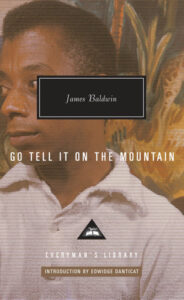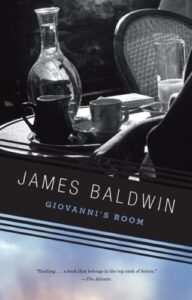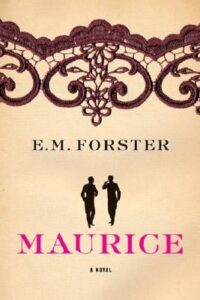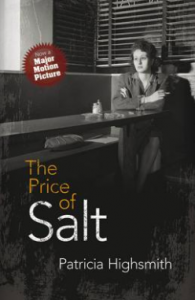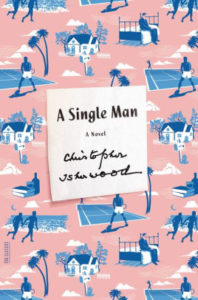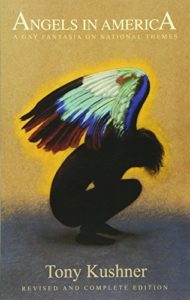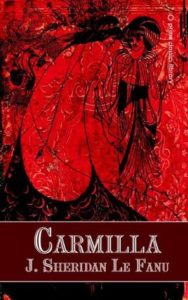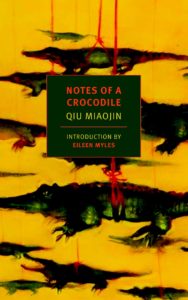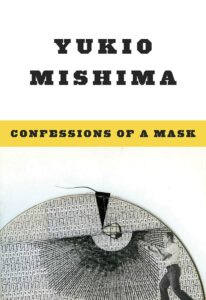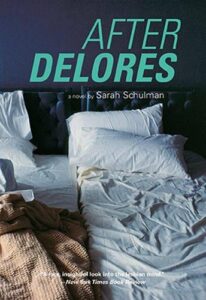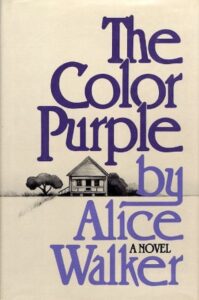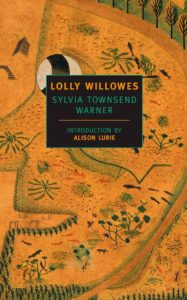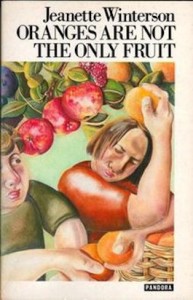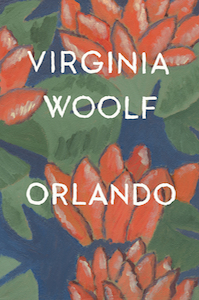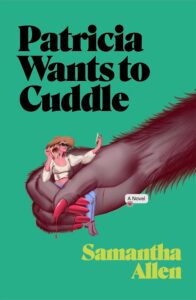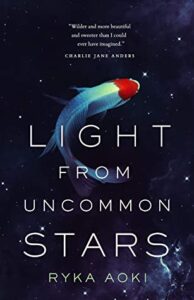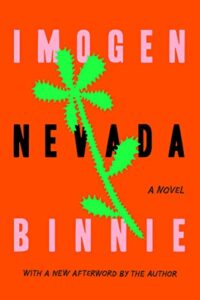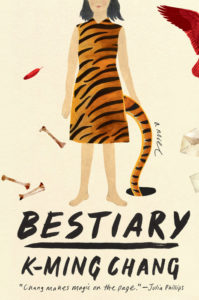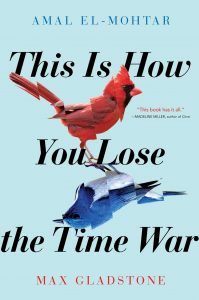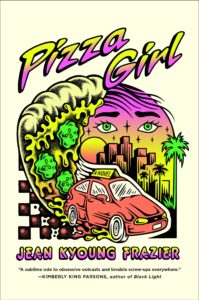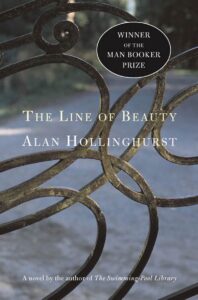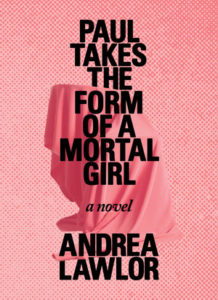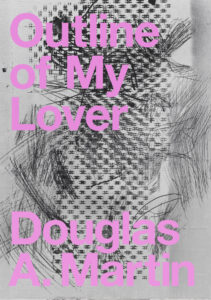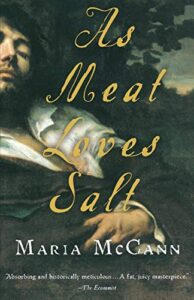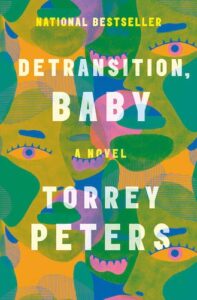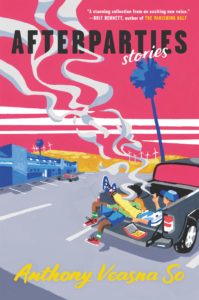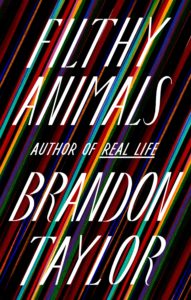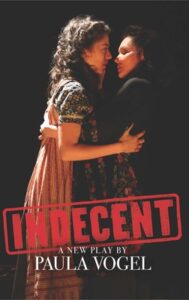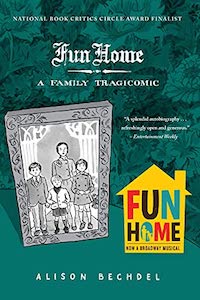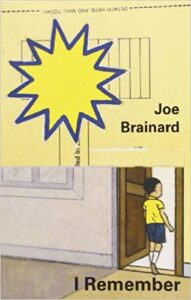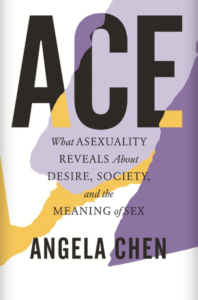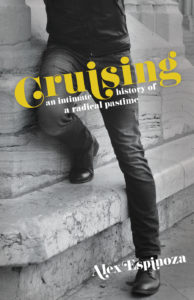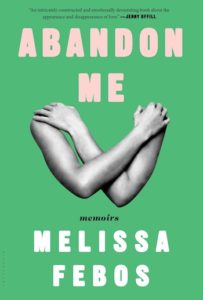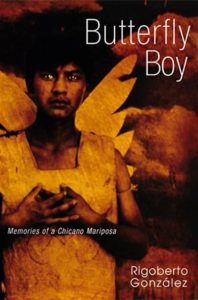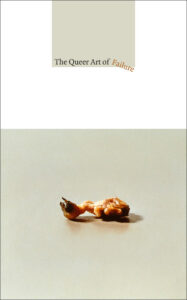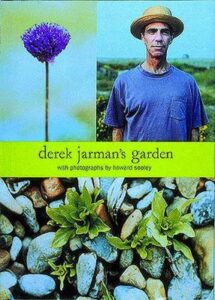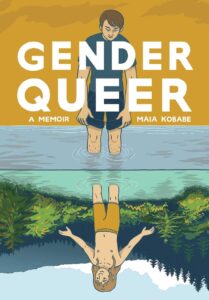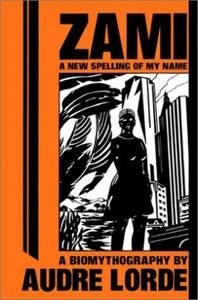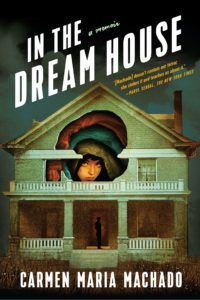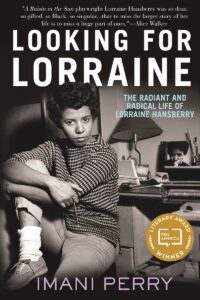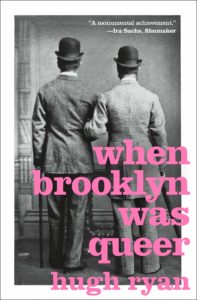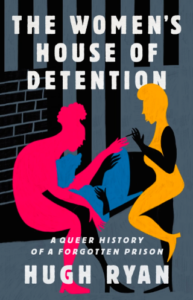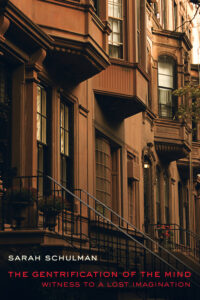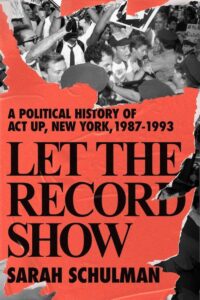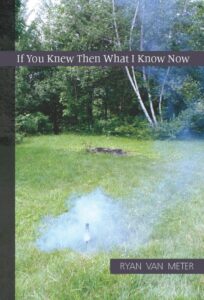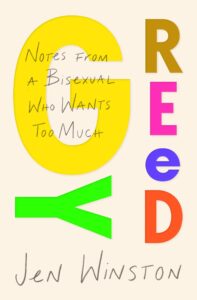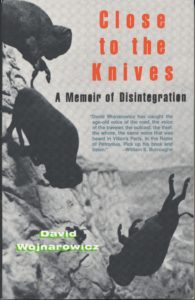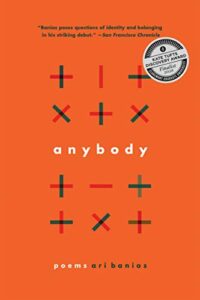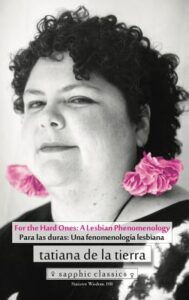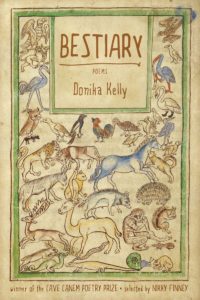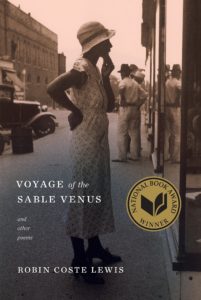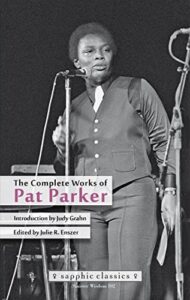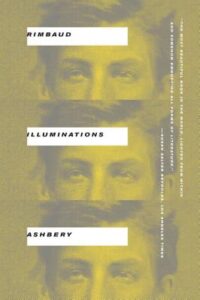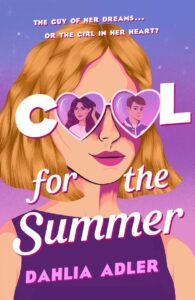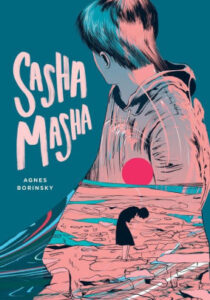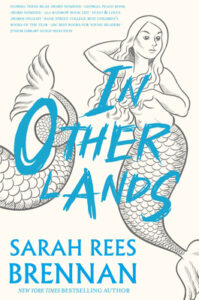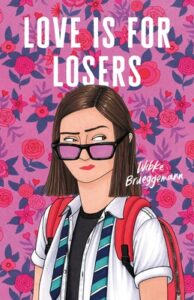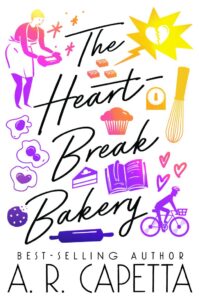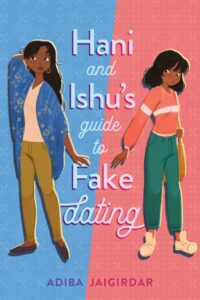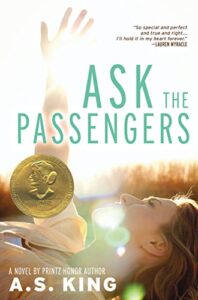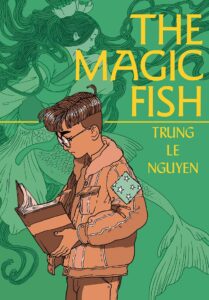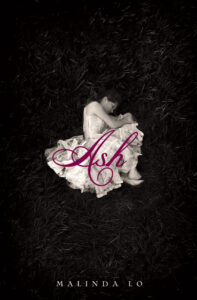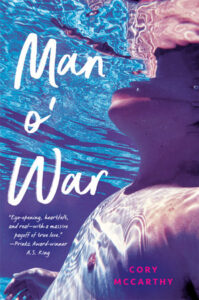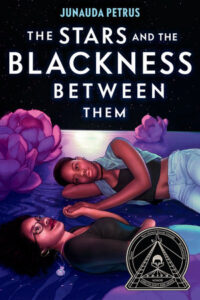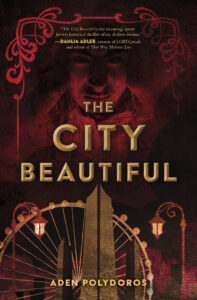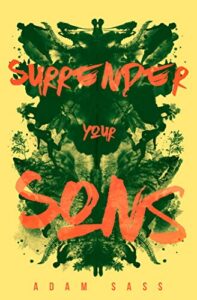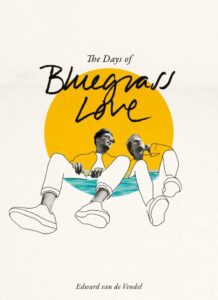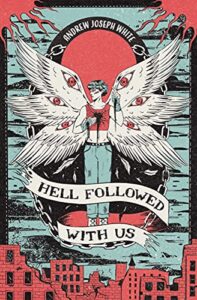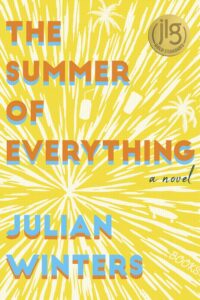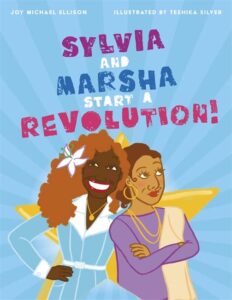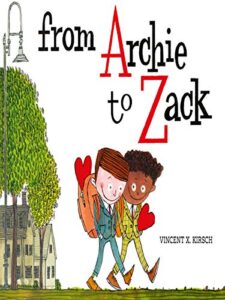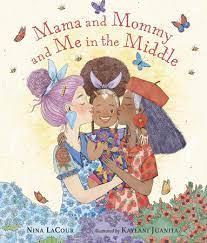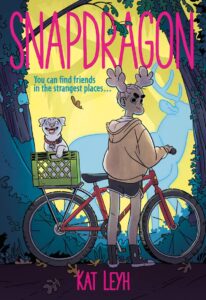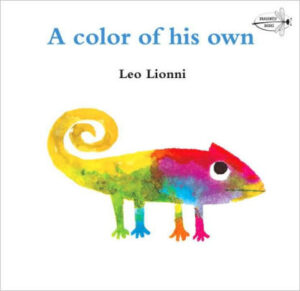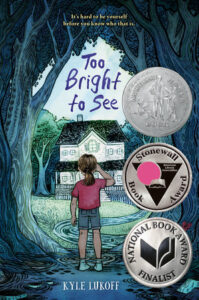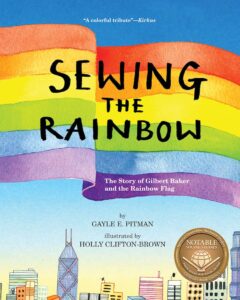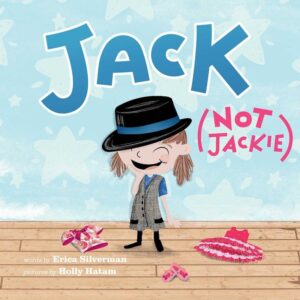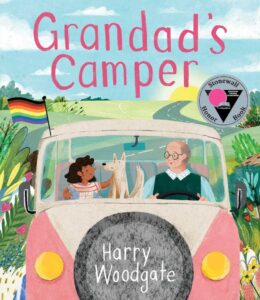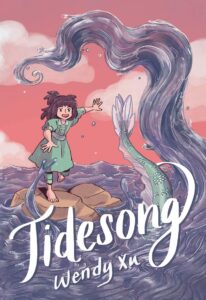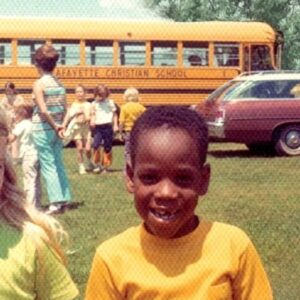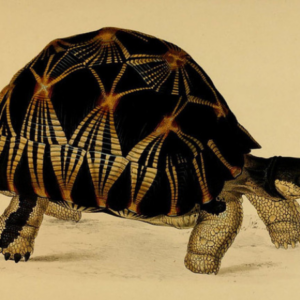
111 Queer Books Recommended by Librarians, Booksellers, and Authors
For Your Pride (and Year-Long) Reading Pleasure
While we celebrate queer literature and history all year long at Lit Hub dot com, we also love a good book list. This year, in honor of Pride, we reached out to some of our favorite librarians, booksellers, and authors and asked them about the queer books they find themselves recommending over and over again—the ones that no library would be complete without, book bans be damned. (We also added a few of our favorites because we can’t help ourselves.) The resulting list of 111 books—categorized by classics, contemporary, nonfiction, poetry, YA, and children’s—is by no exhaustive (we’re not that good). But it is joyful, varied, and personal, the virtual equivalent of dropping into a bookstore and asking the coolest person what to read next.
A few process notes for those of you in the front row: we drew an arbitrary temporal line between “classics” and “contemporary”—that line is the latest millennium. (Gasp, you’ll feel better.) That means some 90s classics are in contemporary, and maybe some titles you don’t feel have earned classic status are there anyway. It’ll all be okay. Labels are meaningless.
Now sit back, relax, and enjoy the ride. And above all, Happy Pride!
*
CLASSICS
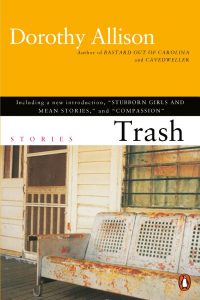
Dorothy Allison, Trash: Stories
Dorothy Allison’s Trash is a collection that starts with complex tales of an abusive Southern childhood; it’s about loving and hating the people who love and hate you. The second half is full of lesbian lust, seduction, and more love and pain. It’s a book to savor and to share. –Sara Luce Look, Charis Books and More
James Baldwin, Go Tell It on the Mountain
James Baldwin enchanted the world with this radiant debut. Published in 1953, the sheer range of concerns (racial, sexual, spiritual) that Baldwin explores through the prism of this novel are, to this day, not often handled with the care and attentiveness demonstrated here. Giving voice to John Grimes, a precocious and incredibly intelligent Black boy on the precipice of varied awakenings, Baldwin, with his signature empathic capacities, attends to the rich and awful complexities of humanity in this haunting story. –Malik Thompson, Loyalty Bookstores
James Baldwin, Giovanni’s Room
The story of a romance between an American and an Italian man living in Paris, Giovanni’s Room is an all-time classic of gay literature and a document of the love, longing, and violence that happens at the margins of society. It is impossible to overstate how extraordinarily ahead of its time this book is; Baldwin opened his readers to the undercurrent of queer desire that was barely spoken of at the time, much less depicted in passages like these: “In the beginning, our life together held a joy and amazement which was newborn every day.
Beneath the joy, of course, was anguish and beneath the amazement was fear; but they did not work themselves to the beginning until our high beginning was aloes on our tongues. By then anguish and fear had become the surface on which we slipped and slid, losing balance, dignity, and pride.” The vulnerability of new love and the precariousness of building a queer life, particularly at this time: it’s all here, exquisitely written and inexpressibly moving. –Corinne Segal, Lit Hub senior editor
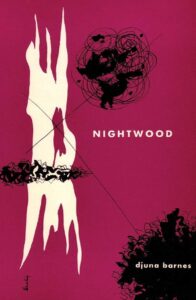
Djuna Barnes, Nightwood
Gothic, surreal, and atmospheric, Djuna Barnes’ Nightwood chronicles the devastation enacted by a single woman as she upheaves the lives of her lovers through their tumultuous and all-consuming affairs between both men and women. Beloved by people including Anais Nin and William Burroughs, Nightwood is a challenging but rewarding read that has become a cult classic of queer and avant-garde literature. –Chloe Johnson, Vroman’s Bookstore
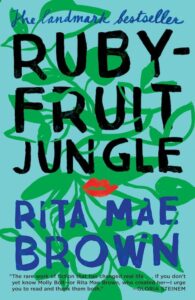
Rita Mae Brown, Rubyfruit Jungle
For almost 50 years Rubyfruit Jungle has been the novel passed from one lesbian to another as evidence of our existence, our sex, and yes, our humor. Molly Bolt is as original a character as has ever graced the pages of American literature and audiences continue to cheer and laugh as she makes her idiosyncratic way in the world. –Sara Luce Look, Charis Books and More
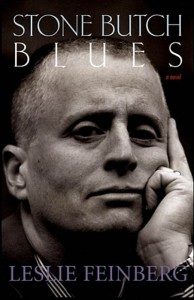
Leslie Feinberg, Stone Butch Blues
The classic of butch/femme and trans literature, Stone Butch Blues is a book that has probably saved more lives than many others on this list. Feinberg gave butches and transmasculine people and trans men a way to talk about our pain and our pride in a way that no one had before, and no one else has in quite the same way since. If you want to understand how we got where we are in contemporary queer/trans America, no single novel is more necessary. –E.R. Anderson, Charis Books and More
E. M. Forster, Maurice
E.M. Forster wrote Maurice, the story of a young man who grapples with his sexuality and then decides that he deserves a happy life with the man he loves, from 1913 to 1914, but the novel was not published until 1971, a year after his death. It is a lovely story, of self-love first and foremost, and then the triumph of a romantic love which is not only same-sex but also cross-class. –Olivia Rutigliano, CrimeReads associate editor
Patricia Highsmith, The Price of Salt
Often called “the first lesbian book with a happy ending,” The Price of Salt (Carol) is a foundational piece of lesbian history. Published pseudonymously in 1952, the book chronicles an illicit affair between a young wanna-be artist and an older housewife. Beautifully written and searingly personal, no dive into LGBTQ+ books is complete without it. –Grace Ellis, author of Flung Out of Space: Inspired by the Indecent Adventures of Patricia Highsmith
Christopher Isherwood, A Single Man
Christopher Isherwood’s A Single Man was noteworthy when it was published in 1962 for its earnest, truthful, heartbreaking narrative about one day in the life of a middle-aged gay English professor, following the death of his partner. He observes things, speaks to people, and reflects on his existence, as he grapples with the joy of having a life to live at all. It’s a beautiful book. –Olivia Rutigliano, CrimeReads associate editor
Tony Kushner, Angels in America
A landmark moment not just in the history of gay writing or playwriting but the history of American literature, period, Tony Kushner’s Angels in America—the odyssey of a group of characters trying to survive and grow during the AIDS crisis and the Reagan administration—holds a world of insight, pathos, humor, and grief in every single line. This edition, published in 2013, includes a new introduction and is my favorite. –Corinne Segal, Lit Hub senior editor
Sheridan Le Fanu, Carmilla
Everyone should read Sheridan Le Fanu’s 1872 lesbian vampire novella Carmilla. Preceding Dracula by 26 years, it is a surprisingly affectionate exploration of same-sex attraction. The novella treats the union between the ancient, eternally young vampire Carmilla and the young woman Laura as impossible because of Carmilla’s vampirism, not because of their genders. Which is, you know, pretty cool. –Olivia Rutigliano, CrimeReads associate editor
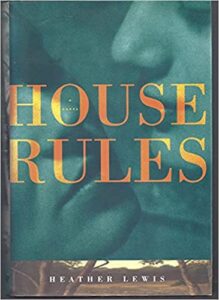
Heather Lewis, House Rules
Life can be incredibly cruel, ugly, and frightening. For gay people, for straight people, for prize-winning horses. House Rules is not a book about identity or community or love, it’s a book about survival and the ways brutality can be exciting and even pleasurable. It’s a real book, which is to say its intensity is almost surreal. There are no victims, no heroes, no transformations or redemptions, just some girls and some horses and a lot of heroin. –Nicole Pasulka, author of How You Get Famous
Qiu Miaojin, tr. Bonnie Huie, Notes of a Crocodile
This is a melancholy and angsty coming-of-age story about a group of queer individualists exploring their identities and sexuality in a world that largely rejects them. The story is told through journal entries in which the protagonist, known only as Lazi, depicts her confused romances, philosophical debates with classmates, reflections on art, and her internal thoughts as she navigates her college years and her ambivalent ideas about the future. It’s a beautifully sad story that mirrors Qiu Miaojin’s own life. –Chloe Johnson, Vroman’s Bookstore
Yukio Mishima, tr. Meredith Weatherby, Confessions of a Mask
Notorious author and bodybuilder Yukio Mishima’s most autobiographical novel begins with the character Kochan and his childhood obsession with Guido Reni’s painting of St. Sebastian, in which the saint is depicted pierced with arrows. This awakens Kochan’s realization that he is attracted to men as well as a deep fascination with violence. The narrative goes on to give a brutally honest account of a man who must conceal his true self in order to survive in a culture that would seek to scorn him. Mishima is a master of combining romance, violence, and death into one floral concoction; this is a somber yet powerful read that captures the tragedy of suppressed desire. –Chloe Johnson, Vroman’s Bookstore
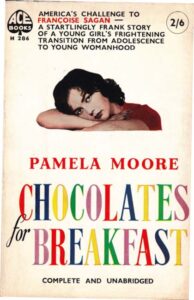
Pamela Moore, Chocolates for Breakfast
Boarding schools have long been a breeding ground for queer love affairs—let girls sleep, eat, and learn together and soon enough they’ll be falling in love, kissing in shadowy corners of courtyards. Pamela Moore’s 1956 novel Chocolates for Breakfast opens in one such school, with two teen girls gossiping in the nude. Courtney, our openly bisexual protagonist, will find herself in a mental institution, a Beverly Hills hotel, a fellow bisexual partner’s bed, glamorous New York dinner clubs, and a penthouse apartment before this book ends. Courtney is a girl who isn’t afraid to admit that life is largely a letdown, but that won’t stop her from having a good time with the right partner in crime. She likes her food fried or flambeed, her drinks chilled and strong, and her lovers sarcastic and sybaritic.
Out of print for decades, the book was reissued in 2013 and has long deserved a prime place in the queer canon for its lavishly earnest depiction of a queer girl coming of age, coming up against the boring binaries of her era, and emerging scarred but certain of who she is. –Emmeline Clein, author of Dead Weight (forthcoming)
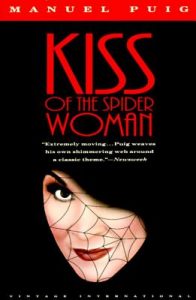
Manuel Puig, Kiss of the Spider Woman
Two prisoners—one gay and transfemme with a penchant for the aesthetic, the other straight, masculine, and staunchly Marxist—talk in a cell about movies and about each other. That’s about it for the plot of this 1976 novel from the Argentinian master of combining the popular and the literary, Manuel Puig. But the book weaves together so much around politics, aesthetics, shame, sex, motherhood, the carceral state, infancy, genre, and care. Not since Genet had gayness so totally determined the formal movements of a novel, and not even Genet’s queeny protagonists could be as memorable as Puig’s Molina. –Gabriel Ojeda-Sagué, author of Losing Miami
Sarah Schulman, After Delores
On its face, After Delores is the story of a breakup—the narrator’s pain, her revenge fantasies against the woman who left her, and the unbearable reality of her life as it, inevitably, goes on. It’s also sexy and exhilarating, moving quickly through the subculture of queer life in New York City in the 1980s on the Lower East Side.
But beneath that, it expresses a combination of feelings that I haven’t seen any other novel do, at least so well: the rage of being abandoned when your society offers you no recognition or recourse; the loneliness of knowing there is no blueprint for what comes next; the heartbreak of losing queer love in a place where it is already so hard to find. There’s no other book like this. –Corinne Segal, Lit Hub senior editor
Alice Walker, The Color Purple
The Color Purple, an indispensable work in the history of American literature, is driven by the love between Black women: most notably, between protagonist Celie and her sister Nettie as they write to one another over the course of many years, and between Celie and Shug Avery, the glamorous jazz singer who is, at the story’s outset, the mistress of Celie’s husband. Though the relationship between Celie and Shug has been downplayed in various adaptations—including Steven Spielberg’s award-winning 1985 film, in which the two shared only a kiss—their queer love, mutual pleasure, and joy with one another is an important cornerstone of this narrative and beautiful to witness. –Corinne Segal, Lit Hub senior editor
Sylvia Townsend Warner, Lolly Willowes
Lolly Willowes is the story of a spinster trapped within the confines of her “classic feminine roles” who abandons civilization to live in the rural countryside to become a witch. Considering Sylvia Townsend Warner’s own romantic history, the queer subtext to this novel is undeniable. Lolly Willowes leaves behind her life of confinement in favor of a spot in a coven of female witches who worship Satan. This is a beautifully written little book with luscious prose that truly captures the aromas of nature and the internal struggle of someone whose lifestyle is at odds with those around them. –Chloe Johnson, Vroman’s Bookstore
Jeanette Winterson, Oranges Are Not the Only Fruit
Considered required reading in a lot of contemporary fiction classes and a classic of LGBTQ+ literature, Oranges Are Not the Only Fruit is Jeanette Winterson’s first novel. This powerful debut, which won the Whitbread Prize for Best First Fiction back in 1985, loosely follows the actual events of the author’s life but is very much a work of fiction. (The memoir comes later.)
Meet Jeanette: adopted into a very conservative and religious English Pentecostal family. When she’s a teenager, she falls in love with a woman, and they run away together. The groundbreaking and brilliant thing about it, though, is that she structures the book like the Bible. The first bit is called Genesis. Deuteronomy is a key chapter that, in a way, teaches you how to read the book. In framing her story like this, she becomes her own God. –Katie Yee, Lit Hub associate editor
Virginia Woolf, Orlando
Virginia Woolf wrote Orlando, the story of a person who switches genders and lives for centuries, for her longtime lover, the aristocratic-born writer Vita Sackville-West. Born a man in the court of Elizabeth I, Orlando becomes a woman in his early adulthood, while serving abroad in Constantinople, and remains a biological woman for the rest of her life. However, she switches gender roles back and forth depending on the situation she finds herself in. She travels through many literary circles throughout the centuries, until she falls in love with and marries a sea captain who also does not conform to gender presentations. Finding herself in the 20th century at last, she reaches her greatest potential as a writer and publishes her masterpiece, celebrating the multitudinous ascendency that has been her whole life. –Olivia Rutigliano, CrimeReads associate editor
*
CONTEMPORARY
Samantha Allen, Patricia Wants to Cuddle
This is the lesbian Sasquatch novel you’ve always wanted. A group of finalists for a Bachelor-style show head to a remote British Columbian island to film the final episodes of the contest. While there, they encounter a female Bigfoot and her coterie of admirers, and those that do not admire her (as they properly should) are torn limb from limb because this is the most badass book imaginable. Patricia is the Sasquatch, by the way. The publisher describes it as “viciously funny” but I thought it was also kinda sweet. I’d give Patricia a cuddle. –Molly Odintz, CrimeReads senior editor
Ryka Aoki, Light from Uncommon Stars
Light from Uncommon Stars is part trans coming-of-age story, part fantastical adventure, part love letter to the queer community. This book does not shy away from darkness. But ultimately, it is a story of hope, acceptance, found family, and finding love over donuts. This life-affirming novel will tear your heart out, and yet leave you feeling fully at peace. –Mattie Shepard, The Book Loft of German Village
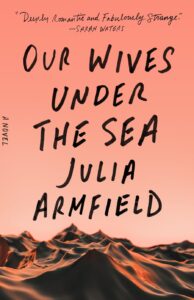
Julia Armfield, Our Wives Under the Sea
Reading this book feels like sinking slowly into pitch-black water. It will haunt you, drown you, and leave you floating just below the surface. A romance and an elegy, this novel is bubbling over with queerness and the strange, haunting, beautiful experience of being a lesbian. Sometimes being a lesbian feels like being a wife in a wonderful marriage. Sometimes it feels like being a ghost. Sometimes it feels like living deep, deep underwater surrounded by only mystery and sea monsters. Our Wives is vibey and atmospheric and heartbreaking and honest and so gay. Sad lesbians (and regular lesbians), get ready. –McKayla Coyle, Lit Hub Engagement Coordinator
Imogen Binnie, Nevada
McKenzie Wark talks about how a “string of sad trans girl novels” were brought upon by this book. And this sadness that emanates from the book has, in my eyes, little to do with the actual girl. It can be devastating to be a girl like us. The pain, the frustration, the hyperfixation you didn’t know you had in you. It’s incredibly brave for this book to show all that. It’s a marvel of a novel filled with love, beauty, and fantastic particles that whiz across your eyeballs. I’ll carry your suitcase. –Jitszy, Green Apple Books
K-Ming Chang, Bestiary
In her luminous debut novel, K-Ming Chang weaves together folklore and fairy tales to give added texture to this story of a Taiwanese American family. Following three generations of women, Bestiary is one of the best books you’ll read about intergenerational trauma and hidden desires. Every sentence turns with a poet’s charm. The beating heart of this narrative is Daughter, who awakes one morning with a tiger’s tail (based on a myth Mother told her).
What unfurls from here is beautifully surreal. Holes mysteriously appear in the backyard and unearth old letters by Mother’s mother—that kind of thing. The image of Daughter and the neighborhood girl she loves probing at the earth, coaxing its secrets out—that’ll stick with you. –Katie Yee, Lit Hub associate editor
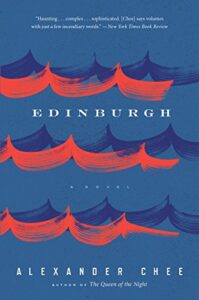
Alex Chee, Edinburgh
This book tops the list of novels that made me weep openly on a plane. Embarrassing, yes, but I would do it again! Edinburgh is a gay powerhouse of a book that refuses to leave your brain after you’ve read it. It’s a coming-of-age novel, it’s a romance, it’s a tragedy, it’s a poem, it’s a song.
Detailing the life of 12-year-old soprano Fee from naïve youth in a boys’ choir to strained adulthood as a teacher himself, Chee writes his character’s ongoing relationship to trauma in a thoughtful, nuanced fashion. On the line level, the text is lyric, so gorgeous that I found myself underlining almost every sentence. I can’t count the number of times I’ve recommended this book to people—and I will continue to recommend it forever! It’s a masterpiece. –Kristen Arnett, author of With Teeth
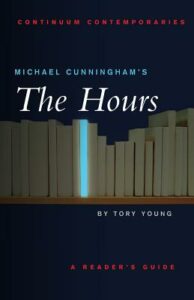
Michael Cunningham, The Hours
I just read The Hours for the first time (after, it must be said, having seen the film a lot), in Picador’s gorgeous new double edition that also includes Virginia Woolf’s Mrs. Dalloway. I was completely transported by Cunningham’s rich interweaving of his historical fiction narrative of Woolf’s time writing Mrs. Dalloway with his two more contemporary-set narratives that act out and retell Mrs. Dalloway—about women and men struggling with their obligations and desires, and ultimately, experiencing the joy of being alive alongside the torturous meaninglessness of existence. The Hours reads Mrs. Dalloway, it doesn’t just write about it. And you should read Mrs. Dalloway, too, and then you should read The Hours. –Olivia Rutigliano, CrimeReads associate editor
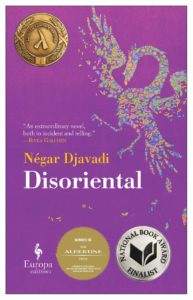
Négar Djavadi, Disoriental
Reading Disoriental was a bit like having a fever dream of a family you once had but can only catch snippets of memories here and there. Nègar Djavadi’s non-linear style kept leading me back into the dream, into the folklore of Kimiâ Sadr’s family. Great-grandfathers with harems of wives, grandmothers with vivid blue eyes, and seven uncles to name and hold close. It’s the story of how a family can bind you to a place even when coups and revolutions exile you physically. Kimiâ of present day sits in a French clinic waiting to be artificially inseminated, while past Kimiâ grows up amid the turmoil of 1970s Iran. I really can’t recommend this book enough. It’s got a bunch of my favorite things: queerness, epic family stories, strong women, political dissent, history, postcolonial themes, and amazing characters. –Sara Wigglesworth, Green Apple Books
Amal El-Mohtar and Max Gladstone, This Is How You Lose the Time War
This is a short book but doesn’t lack any emotion or storytelling. It involves two agents, codenamed “Red” and “Blue,” embroiled in a war that jumps time and alternates history, who write letters to each other that begin as a taunting rivalry and soon turn to flirtation. This is a book that can be read over and over again and reveal something new every time. The themes range from personal connection in a time of war to gender identity and time travel. It is beautifully written, with a style that floats between prose and poetry, and watching the two women fall in love is emotionally gratifying. –Luke Gaulke, Bexley Public Library
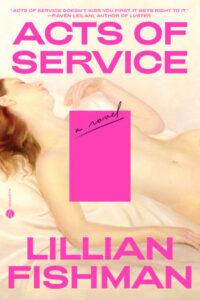
Lillian Fishman, Acts of Service
In Acts of Service, a New York woman goes looking for sexual liberation in the worst possible way: She finds herself in a poorly defined polyamorous relationship with a man and a woman. Things get messy. This book explores unsettling relationship dynamics, desire and power. If you were into any of the books on our Hot/Sad Girl Reading List, definitely check this one out. –Aatia, Books Are Magic
Jean Kyoung Frazier, Pizza Girl
This is one of those books that came out early in the pandemic and one that people need to race back to read. The titular “pizza girl,” 18-year-old Jane, is pregnant by her boyfriend. They both live with Jane’s mother while Jane delivers pizzas at night to help make ends meet, imagining herself into the lives of the people who order from her. One of those customers is a woman with a young son of her own, a woman who Jane finds herself obsessing over.
The novel is messy in all the very best ways: characters dealing with burgeoning queerness, unexpected pregnancy, class and finances, relationships with romantic partners and with family, trauma, and much more—all packed into a tight 200 pages. AND it’s funny! I ripped through this book and then immediately went back and read it again. Pizza Girl is incredible. –Kristen Arnett, author of With Teeth
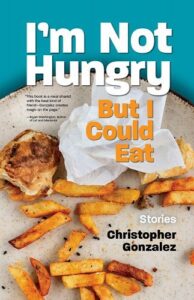
Christopher Gonzalez, I’m Not Hungry But I Could Eat
I opened this book because it promised me stories about bisexual Puerto Rican men, but I couldn’t put it down because I didn’t want to stop reveling with Gonzalez in the awesome messiness, hunger, and power of the queer spirit. I wish I could give this book to 13-year-old me and say, “Look what’s possible.” –Edgar Gomez, author of High-Risk Homosexual
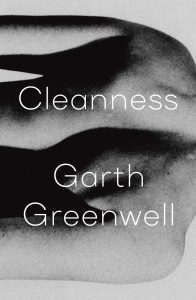
Garth Greenwell, Cleanness
No form of media since Rodney Evan’s film Brother to Brother has, in my opinion, captured so profoundly that cross-section of melancholy, loneliness, and a blazing desire for more, as experienced by queer men, than Garth Greenwell’s Cleanness. Following Greenwell’s unnamed, unmoored protagonist as he explores the foreign-to-him Bulgaria in search of something, each of these nine stories is a quiet epiphany. Resisting self-indulgence and didacticism, Greenwell’s stories glimmer and whisper. –Malik Thompson, Loyalty Bookstores
Alan Hollinghurst, The Line of Beauty
I think about this book and I just sigh. About gay male love and lust in Thatcher-era London during the early years of the AIDS crisis, The Line of Beauty is a perfect novel. Unlike many books—even lots of great ones—the characters do, say, and feel things that people would actually do and say and feel. And yet, their stories are pure poetry. Hollinghurst’s characters have big, unarticulated dreams and limited means of making themselves whole or happy, but his writing is always expansive and never bitter. –Nicole Pasulka, author of How You Get Famous
Robert Jones, The Prophets
The Prophets by Robert S. Jones Jr. is an instant classic of queer literature, celebrating the story of Isaiah and Samuel, two young men whose transcendent love threatens to transform even the most brutal and heartless people on the plantation where they are enslaved. –E.R. Anderson, Charis Books and More
Andrea Lawlor, Paul Takes the Form of a Mortal Girl
Have you ever been wedged between bodies in a crowded elevator imagining what it would be like to fuck every single one of its occupants? So has Paul/Polly, the hero/ine of Lawlor’s sexy, funny, bawdy, satirical fantasy on queer bodies and queer lives in the 90s. It’s Woolf’s Orlando, with more dirty hot sex scenes. –Joanna Walsh, author of Girl Online
Douglas A. Martin, Outline of My Lover
This slim novel, the story of an obsessive love between a young man and the older musician who keeps himself at a distance, is intense, sexy, gratifying even while it’s breaking your heart. Douglas A. Martin captures that specific moment in which you will do anything to keep a particular person in your life; as his narrator submits to desire, his story becomes one of wandering, shifting identity, and the moment-by-moment calculations of an intense, unstable love.
As Hugh Martin writes in his introduction to a recent Nightboat Books edition of the book, he takes on “a rarely articulated position: the cunning pathétique, whose acts of submission are as calculated as they are genuine. He gets what he wants by becoming what is wanted.” It’s a classic of queer literature and an inventive, gripping story. –Corinne Segal, Lit Hub senior editor
Maria McCann, As Meat Loves Salt
Abrasively romantic, compellingly paced, and painfully impactful, I fell hard and fast for Maria McCann’s As Meat Loves Salt. For an objectively daunting 550 pages, we live inside the head of Jacob Cullen, a 17th-century damaged and disastrous man whose plight takes him from rural servitude to Cromwell’s army. Immediately upon enlistment, Jacob meets Christopher Ferris, a soldier who becomes the object of his possessive & tempestuous devotions—painted with blood and bodily fluid, McCann’s book is unabashedly gay, deliciously sexy, and repulsively twisted. Not for the faint of heart, but an impossible treat for those sick of good-guy-gays and unconsummated desire. –Mathuson Anthony, Book Club Bar
Carley Moore, Panpocalypse
This book so perfectly captures the feeling of early pandemic, and the dreadful feeling of longing for touch when it’s not safe to do so. Set in the spring of 2020, the story centers on Orpheus, a queer disabled person, who travels New York City by bike searching both for her ex-girlfriend Eurydice and a secret lesbian bar Le Monocle.
Panpocalypse is a brilliant blurring of fiction and truth, and it’s such a unique read. Carley Moore’s writing is both cynical and hopeful, specific and universal, and always affecting. I rarely recommend Covid books, but this strange and beautiful time-bending book is not to be missed! –Julia, Books Are Magic
Torrey Peters, Detransition, Baby
Torrey Peters goes for blood. There is not a single punch pulled in this book. Your deepest, darkest, slumber party, key-padlock-diary-for-my-eyes-only secrets all are splashed up and down this book; you’ll be drowning in it. But like any amount of honesty, there’s a form of freedom that arises. And this book begs you to bloom. Begs you to bloom as a girl, as a mother, as a boy, as a family, whatever you’re set on for today, or tomorrow. Or Even If You’re Just Not Sure Yet, Baby. –Jitszy, Green Apple Books
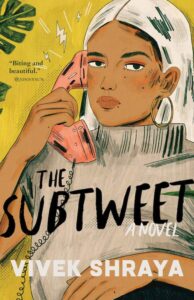
Vivek Shraya, The Subtweet
A novel about two Indian-Canadian musicians who become friends and how that friendship evolves and devolves. It’s one of the best books about friendship and creativity that I’ve ever read. I loved learning more about the behind the scenes of making music and how friendship can sustain us, yet also hurt so much at times. Shraya has an intense way of delving into her characters’ emotional depths that I loved. –Sara Wigglesworth, Green Apple Books
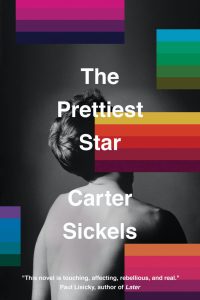
Carter Sickels, The Prettiest Star
In 1986, 18-year-old Brian returns to his small Appalachian hometown to die and ends up teaching his community how to more fully live. A brutally beautiful story of familial homophobia, the early days of the AIDS epidemic, and the longing for home that lives in all of us. –E.R. Anderson, Charis Books and More
Anthony Veasna So, Afterparties
In the wake of So’s tragic passing, this book feels like a minor miracle for the way it serves as a living record of his remarkable mind. Queer, biting, funny, and tender, the stories here—focused on the lives of Cambodian American immigrants—consider the ongoingness of history and trauma as they stand in relation to young people who are equally concerned with sex, comedy, and getting stoned. A book that forges fresh territory in the literary canon with brash resolve. –Scott Broker, Vroman’s Bookstore
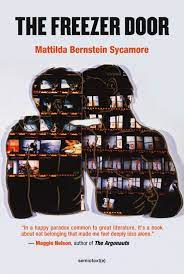
Mattilda Bernstein Sycamore, The Freezer Door
When I read The Freezer Door, I remember thinking that it was one of the queerest books I’d ever read, both in its form and content. Hovering somewhere between genres, the text at first reads like a series of non-sequiturs, or loosely linked epigrammatic statements. Over time, you recognize that Sycamore is building an organic system of thought and feeling, one that constantly acts and reacts to itself.
Though her subjects are wide-reaching, the principle one (in my mind) is of loneliness, and loneliness between queer people in particular. This is something I’m sure most queer people have felt, but that can be hard to admit: that belonging is hardly ever a given, even when surrounded by those who ostensibly constitute your community. –Scott Broker, Vroman’s Bookstore
Brandon Taylor, Filthy Animals
This month, like any other month, I’m celebrating two things: LGBTQ+ visibility and Brandon Taylor’s Filthy Animals. A gripping story collection that features Black and queer feelings, promiscuous dance majors, messy hookups, and dialogue so real-life that you’ll squirm in your seat, this is the “pride read” you didn’t know you needed. Taylor’s prose is equally tender and savage, offering a heart-racing inquiry into the human condition while unflinchingly digging into the very “stuff” of taboo and trauma.
But before you start running to your nearest bookstore to claim your copy, I must warn you that Taylor doesn’t write in half-measures. Instead, he is a maestro wordsmith who only writes with the full of his heart; each and every story holds the power to change the ions in the room. I personally relished every page of this book, though my favorites included “Anne of Cleves,” which follows a middle-aged woman’s first lesbian romance, and “As Though That Were Love,” a story about gay lovers in the countryside who have a male goat named Helena.
Name me another work out there that’s pulled this off before—I’ll wait. In the meantime, I will thrill to see what more Taylor accomplishes. One day, Filthy Animals will be a classic work. I’ll be an English teacher, and these stories will be on my syllabus. –Alessandro Romero, Book Club Bar
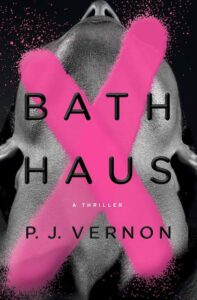
P.J. Vernon, Bath Haus: A Thriller
Bath Haus begins with a bored night in—Oliver Park is happily dating trauma surgeon Nathan, so why is he swiping through dating apps? Oliver’s boredom escalates to the point of visiting a local bathhouse hoping for a hookup, but what he gets instead is viciously attacked by a psychopathic Scandinavian. He can’t tell Nathan—it will ruin their fragile happiness, and convince Nathan that recovering addict Oliver is not to be trusted. But as Oliver makes a series of increasingly bad decisions while trying to hide the truth from Nathan, and Vernon peels back layer after layer to expose the power dynamics of their relationship, we realize that Oliver might be in more danger than even he realizes. –Molly Odintz, CrimeReads senior editor
Paula Vogel, Indecent
This is a play script, but I can’t recommend reading it enough. Indecent is based on the true story of the first lesbian kiss on Broadway. It’s a fascinating and moving play about love, censorship, and Jewish history told in a way that’s unconventional and beautiful. –Grace Ellis, author of Flung Out of Space
*
NONFICTION
Alison Bechdel, Fun Home
Fun Home is a fundamental graphic novel and a fundamental piece of queer literature. Its influence can be seen in basically every modern indie comic from the last 15 years, and with good reason. A memoir about a complicated family with complicated secrets, the book’s unusual narrative structure makes it both poetic and haunting. –Grace Ellis, author of Flung Out of Space
Joe Brainard, I Remember
Joe Brainard’s I Remember is an anaphoric inferno. This radical excavation of memory and self is unbelievable. Brainard remembers seemingly everything—tragedy and transcendence, comedy and camaraderie—from immense collective moments like “the day Frank O’Hara died” to personal micro-moments like “rocks you pick up outside that, once inside, you wonder why.” There is the joy of experience and memory, and there is the sorrow of forgetting. The poem is alive, it’s human, it’s constantly remembering and forgetting like all of us. The living book. I remember wanting to never forget it. –Maxwell Shanley, Green Apple Books
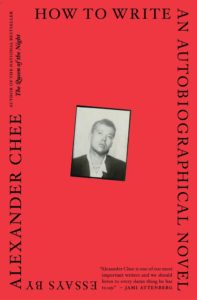
Alexander Chee, How to Write an Autobiographical Novel
This memoir in essays is a must-read for writers of any genre. Guiding readers through his life, Chee is open and vulnerable here, detailing the life events that led to the writing of his first novel. Not only do we catch glimpses of Chee as a young writer, we also learn about Chee’s involvement in queer activism and his coming into his sexuality. A marvelous literary endeavor, this book is a Pride must. –Malik Thompson, Loyalty Bookstores
Angela Chen, Ace: What Asexuality Reveals about Desire, Society, and the Meaning of Sex
The first mainstream book of its kind dedicated to the ace experience, science journalist Angela Chen makes it clear from the author’s note that it should absolutely not be the definitive nor the last. Part reportage, part research, part memoir, Ace is profoundly queer in its epistemology, and the reading experience is revelatory. –Jeanna Kadlec, author of Heretic
Alex Espinoza, Cruising: An Intimate History of a Radical Pastime
As non-hetero identity becomes increasingly assimilated into the broader, normative capitalist project, Alex Espinoza’s brief history of the practice of cruising (the act of seeking anonymous sex in public spaces) reveals to the readers the extent to which society at large has made it difficult for non-hetero men to freely indulge in sexual pleasure. A sweeping overview that extends as far back as the ancient Greco-Roman period, Espinoza is exceptionally attentive to the history of this taboo sexual practice in this necessary book. –Malik Thompson, Loyalty Bookstores
Melissa Febos, Abandon Me: Memoirs
I still remember the first time I read Abandon Me, how the first few pages stunned me into full body chills. The way Febos weaves the slow dissolution of a romantic relationship with the complexity of familial trauma is fucking singular. I reread this book at least twice a year, and I learn something new about craft every time. –Jeanna Kadlec, author of Heretic
Rigoberto Gonzalez, Butterfly Boy: Memories of a Chicano Mariposa
Butterfly Boy is composed in three registers. His intimate account of an arduous father-son bus ride from California to Mexico weaves between another narration, a memoir-of-place about the author’s lost mother, his family’s migrant farm labor, and his own secret sexual awakening. The third voice is a lyric whisper, sometimes directed at the abuser he keeps trying and failing to leave, other times to a dream lover who hears the true nature of his desire. Butterfly Boy is a gorgeous intersectional classic that helped define both borderland and queer memoir form. –Barrie Jean Borich, author of Apocalypse, Darling
Jack Halberstam, The Queer Art of Failure
I want to fail so incredibly and so often that it shows on my face. I want to be frivolous, childish, naive, and forgetful. All the things brandished as ways to make me small are the key to my power, and every page flip of Halberstam’s book is a reminder that the biggest successes in my life are the results of complete and utter failure. And I’m proud to say so. –Jitszy, Green Apple Books
Derek Jarman, Derek Jarman’s Garden
Up until his last days and AIDS death, filmmaker, artist and activist Derek Jarman was unstinting in a vision coupling contemporary outcry with spotted beauty. No coffee table production or mere pictorial supplement to his diary Modern Nature that spans similar years, this collation of image and text and active memory shows the magical, sustaining place as nurtured. A haven for eyes and thought with an ecology of feeling, this is a document of transformation and persistence, a witch’s workbook at the end of the 20th century. –Douglas A. Martin, author of Wolf
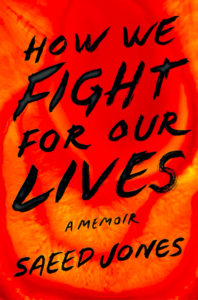
Saeed Jones, How We Fight For Our Lives
How We Fight for Our Lives is a beautiful, honest, and introspective coming-of-age memoir. I am especially moved by the relationship of love and grief between Jones and his mother. I get swept away with his writing, and I love recommending this book! –Riley McMaster, Prologue Bookshop
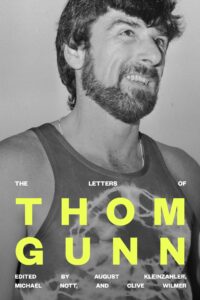
August Kleinzahler, Michael Nott, and Clive Wilmer (Eds.), The Letters of Thom Gunn
What a thrill to peek into the radical dailiness of Thom Gunn, the coolest poet: his wit, appetites, and in-betweenness: “Not that I’m American, but I’m not (really) English either.” Back from England in 1979 (“I am a good deal too famous there to be comfortable”), he dryly notes in his local San Francisco bookstore that his books “do not seem to have diminished by even one. It’s called having the best of both worlds.” Thom was our great poet of doubleness, the hide-and-seek between lust and loss, and of formal promiscuity. These letters—which are as good as Bishop’s or Hart Crane’s—like his poems, are the best of both worlds. –Randall Mann, author of A Better Life: Poems
Maia Kobabe, Gender Queer: A Memoir
As a trans and nonbinary person I’ve often felt that I couldn’t begin to describe my identity to others until I fully understood it myself. Maia Kobabe (e/em) taught me I was wrong a hundred times over in eir comic memoir Gender Queer. The book is an intimate depiction of Kobabe’s life and eir journey to identifying as nonbinary and asexual. It is filled with confusion and sadness, but also with real joy. Eir story is messy in an honest, important, and empowering way. While reading it, I found some of my most vulnerable feelings put to words and I felt far less alone after I had finished.
I recommend Gender Queer to people of all genders and sexualities. It is truly a work that we can all learn and grow from. It breaks my heart that Gender Queer has been banned in school districts across the country, notably including the county where I grew up. But I take this fact as even more reason to read and share Kobabe’s words, and to shout from the rooftops about how important they are. –Jude Thompson, Book Club Bar
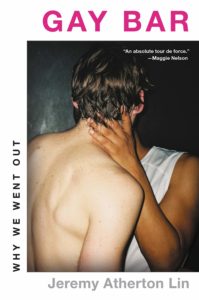
Jeremy Atherton Lin, Gay Bar
Like the bars he writes about, this book has an intoxicating blend of camp and class, raunchiness and gravity. Through memoir and cultural analysis, Lin renders the gay bar as the culturally shapeshifting entity it is, exploring what it has meant, and continues to mean, to queer people across time and location. Perhaps most interesting (and distressing) is his commentary on the way gay bars have become so popular to straight people. (Why can we not have one nice thing?) A perfect read for those who like their books both horny and smart. –Scott Broker, Vroman’s Bookstore
Audre Lorde, Zami: A New Spelling of My Name: A Biomythography
Zami: A New Spelling of My Name: a Biomythography by Audre Lorde is about her life growing up as a first-generation Black Caribbean Lesbian. Lorde goes from being a quiet child to becoming one of our most important Queer and Radical thinkers. Both political and erotic, Zami is a lesbian classic. –Dartricia Rollins, Charis Books and More
Carmen Maria Machado, In the Dream House
This is a brilliant and deeply personal memoir that reinvents itself with every chapter. Written like a haunted house possession story, Carmen Maria Machado takes a genre-bending approach to dissecting queerness, relationships, and trauma as she paints an intimate portrait of the abuse she experienced in her own relationship. Domestic abuse is a difficult topic to tackle, even more so in the scope of queer relationships, but Machado does so with grace and intelligence. Unlike anything I’ve ever read, this is an inventive, touching, and extraordinary work that I devoured. –Chloe Johnson, Vroman’s Bookstore
Imani Perry, Looking for Lorraine: The Radiant and Radical Life of Lorraine Hansberry
As a part of the pantheon of literature attempting to expand our understanding of the life of the meteoric playwright, Imani Perry’s Looking for Lorraine is an intimate attempt to reach Lorraine Hansberry, not merely tell a story of her life. Written in Perry’s thoughtful, attentive style, we are taken on a journey through the many lives lived by Hansberry during her own brief life. I stepped away from this book with a deeper appreciation for all the ways Hansberry made her mark as a politically radical Black woman who loved other women. –Malik Thompson, Loyalty Bookstores
Hugh Ryan, When Brooklyn Was Queer
Hugh Ryan is one of the most exciting writers of queer history out there: for this, a look at queer life in Brooklyn going back more than a century, he went searching for queer figures as they lived and worked on the margins of the borough. What he found was fascinating, forming an eclectic portrait of queer people’s lives as they tried to make a living, create art, meet each other, hook up, and provide mutual support.
As a historian, Ryan is uniquely gifted at taking his readers not only into the emotional worlds of the people whom he writes about, but also into the physical spaces that shaped their lives, and in this case, he follows the pulse of queer life through the Brooklyn docks, performance spaces, the borough’s historically black community, and plenty of other places that deserve our attention. –Corinne Segal, Lit Hub senior editor
Hugh Ryan, The Women’s House of Detention
This is one of those books that you want to talk about with every single person after reading it. Hugh Ryan is a master historian and storyteller, and this book feels like his strongest work yet! In The Women’s House of Detention, Hugh Ryan spotlights a long forgotten, yet significant part of queer history. His research is meticulous and extensive. Told through the personal, gripping experiences of the women and transmasculine people whose lives were forever impacted by the House of D, this book not only explains and examines this piece of history, but compels us to never forget it again. –Amali, Books Are Magic
Sarah Schulman, The Gentrification of the Mind: Witness to a Lost Imagination
The Gentrification of the Mind: Witness to a Lost Imagination by Sarah Schulman is a necessary and scalding record of the revolutionary voices and visions of people who were killed by AIDS and homophobic neglect in the Reagan era. A love letter to what might have been if a whole generation had not been erased, and a clarion call to all of us who live on now to protect the neighborhoods, spaces, and people who make art and activism possible. –E.R. Anderson, Charis Books and More
Sarah Schulman, Let the Record Show: A Political History of ACT UP New York, 1987-1993
Let the Record Show is an astounding accomplishment on a scale that’s almost impossible to take in: a more-than-700-page history of the AIDS epidemic and ACT UP, the movement working to address it, it’s based on 188 interviews with its members as well as Schulman’s own extensive experience as an activist in the community and a reporter covering the crisis. Members of ACT UP, as Schulman writes, were fighting for their lives in a country where they were politically disempowered, socially rejected, and medically stigmatized: together, their achievements made future generations of queer life possible.
There are so, so many precious details here that could have been lost; Schulman has done the world a service with this legwork, not only to preserve and honor this history but to offer a guide for present-day activist movements on the organizing strategies that work. –Corinne Segal, Lit Hub senior editor
Ryan Van Meter, If You Knew Then What I Know Now
From the cautious, unnamed desires of adolescent daydreaming to the joys—the sex—the heartbreak of first gay love, Van Meter’s voice carries through his collection like a close friend’s: it’s conversational; it’s expressly intimate. It’s remarkably relatable. This book helped me to better see—to write and understand—myself. –Cade Mason, author of Engine Running: Essays
Jen Winston, Greedy
Jen Winston’s memoir of coming out as bisexual in her twenties is as heartfelt, funny, and timely as you could hope for. The author’s misadventures take her to the places I go and her stories feel like my own. In many chapters, she is a fish out of water, searching desperately for belonging in queer nightlife and relationships; in other chapters, she’s right at home. –Aatia, Books Are Magic
David Wojnarowicz, Close to the Knives: A Memoir of Disintegration
This book—a memoir about AIDS, art, and activism—is like a blast of desert wind: hot with fury, gritty with grief, and intent above all on being intimately felt. With the same sensibility that characterizes his art, Wojnarowicz chronicles his experiences and the experiences of those close to him with inimitable verve and poeticism. The text provides embodied access to one of queer history’s most trying times, illuminating the pain and beauty within, and serves as proof that writing is able to keep us radically alive long after death. –Scott Broker, Vroman’s Bookstore
*
POETRY
Ari Banias, Anybody: Poems
I love the candor and conversational nature of these poems, which broach big subjects: queerness and identity, family trauma, the industrial destruction of nature, and what it means to be truly free. Why do we limit ourselves to the gender binary’s cramped spaces? Can we ever really subvert our family’s expectations? What are we going to do with all our plastic shopping bags? As lyrical as it is blunt and comic, this book asks the reader hard questions, and then encourages them to find love in the answers. –Liv Stratman, Book Club Bar
tatiana de la tierra, For the Hard Ones: A Lesbian Phenomenology / Para Las Duras: Una Fenomenologia Lesbiana
tatiana de la tierra passed into another spiritual plane on July 31, ten years ago. I’d like to recommend her book For the Hard Ones: A Lesbian Phenomenology / Para Las Duras: Una Fenomenologia Lesbiana. This was re-printed by Sinister Wisdom Press in 2018. tatiana de la tierra was a Colombian lesbian who made her home in Long Beach, California, and was part of a writing collective with other Queer Mujeres called Las Guayabas. Her writing is sexy, funny, multi-lingual, crossing genres, unafraid, and it forever transformed literary arts in Los Angeles. –Christoper Soto, author of Diaries of a Terrorist
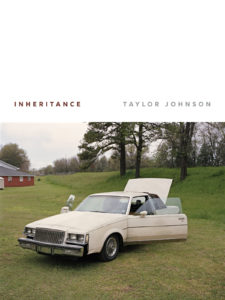
Taylor Johnson, Inheritance
Finding the joy and truth in his trans identity is one of many ways Johnson refuses to live a life bound by anything other than his own expansive vision. The passion of these poems could only come from a hard-won clarity, one that I am so grateful for. –Nathan, Two Dollar Radio
Donika Kelly, Bestiary
Oh, monsters are scared. That’s why they’re monsters. With these words by Neil Gaiman, we are introduced to Donika Kelly’s first book of poems. A collection of terse, intricately layered poems that grapple with childhood wounds, adulthood hurts, and the many monsters carried within a self, Kelly’s first book is brutal as often as it is tender. Containing a series of love poems to a variety of monsters (“Love Poem: Chimera,” for example), the poems constituting this book roar, insisting upon being returned to ad infinitum. –Malik Thompson, Loyalty Bookstores
Robin Coste Lewis, Voyage of the Sable Venus: And Other Poems
The title poem of this collection, which spans some 70 pages, is composed entirely from the titles of Western artworks that feature Black women as subjects. The result is a wondrous canonical intervention, one that reconfigures beauty and selfhood within a historical framework of objectification and oppression. As if this feat weren’t impressive enough, Lewis bookends the collection with two sections of lyric and narrative poems that speak toward her own life as a queer Black woman. The result is a staking of claim—for herself and for others—that spans centuries. –Scott Broker, Vroman’s Bookstore
Pat Parker, The Complete Works of Pat Parker
The Complete Works of Pat Parker is the radical voice we still need today! Pat Parker’s poems are a beautiful inspiration for us to think critically about racial, working-class, gender, and queer oppression. She gives us the words and tools to express ourselves, but also to organize for our collective liberation. –Dartricia Rollins, Charis Books and More
Arthur Rimbaud, Illuminations
Since first spying this book beaming down from a kitchen shelf, cover face like some kind of household god there in only the second home I had ever been in where two men were making a life together, I have pursued this particular poetry. Here is a wellspring of perfumes, costumes, queens (we know what he means), hunk of a genie, wanderlusts, and youthful scenes. A dream of kaleidoscopic musicality and all the feel of riotous sensations. –Douglas A. Martin, author of Wolf
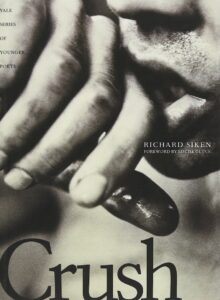
Richard Siken, Crush
Richard Siken’s debut collection is one I frequently recommend to people who don’t know where to start with poetry. It’s impossible not to be enveloped and entranced by Siken’s erotic, cinematic, and yes, queer poetry. I’m not sure I’ve ever read a poetry collection so thrillingly paced—it reads like a chase scene, but one with room for the lines “Tell me how all this, and love too, will ruin us. / These, our bodies, possessed by light. / Tell me we’ll never get used to it.” –Jessie Gaynor, Lit Hub senior editor
Shelley Wong, As She Appears
A new favorite of mine is As She Appears by Shelley Wong. As someone who isn’t often seen or described as queer, I appreciate how Wong approaches the subject of visibility with humor and tenderness. “Is heterosexuality the fog?” she asks in “Weather Advisory,” implicating compulsory straightness as a climate that attempts to make us all feel lost. Her poem “Pride Month,” opens with the Anne Sexton quote, “[i]t is June. I am tired of being brave.” Wong honors Pride as a time of celebration, remembrance, and risk. I love this speaker—all heart in her portrayals of the joys and complexities of queer life. –Taneum Bambrick, author of Intimacies, Received
*
YOUNG ADULT
Dahlia Adler, Cool for the Summer
Nuanced but still swoony, Cool for the Summer juggles a lot—at its heart, it’s a rom-com love triangle, but there’s also the matter of staying in closet with homophobic friends, protecting other queer people, and trying to be true to yourself. Adler shines in the nuances here, keeping everything romantic while also giving us the story of a girl who needs to not just figure out who she wants to be, but find the courage to be her, all the while showing us a world where the shades of both acceptance and homophobia feel deeply true to life. –Lev AC Rosen, author of Lavender House
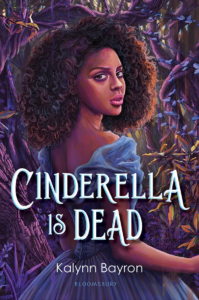
Kalynn Bayron, Cinderella Is Dead
Cinderella’s fairytale is over—for everyone. Young girls must attend “the ball” where the men get to choose who they want to have as their wife. There is no saying no! Sophia does not want a husband, she would rather have a wife. So she runs away from the ball and her family. It is in Cinderella’s mausoleum that Erin meets Constance, the last known descendant of Cinderella. They planned to overthrow the king but did not plan to fall in love. A great love story and twist on a classic fairy tale. –Angela Gabriel, Charis Books and More
Agnes Borinsky, Sasha Masha
Alex has been drifting along aimlessly ever since Alex’s best friend moved to Pittsburgh—trying to date a nice girl, trying to wear the boy’s polo shirts Mom buys. One day the name Sasha Masha floats down from a memory of a game of dress-up and alights—but growing into it and figuring out what it means is a different matter. A trans coming out story as awkward and gentle as you could wish for. Queer youth groups, the movie Querelle, and queer elders feature heavily. –Hal Schrieve, New York Public Library
Sarah Rees Brennan, In Other Lands
Snarky, awkward, and unloveable Elliot finds his way into a fantasy world and begins attending military school as part of their diplomacy program. But nothing is really hunky-dory in this other land; in fact, everything’s kind of screwed up, in several ways, but especially in the ways of war mongering and creatures’ rights violations. Thank goddess we’ve got Elliot’s brilliant sense of humor and strategy and Sarah Rees Brennan’s fascinating deconstruction of children’s portal fantasy. This is the bisexual book of my dreams! –Sara Wigglesworth, Green Apple Books
Wibke Brueggemann, Love Is for Losers
Love is for Losers is so funny and strange and clever. Protagonist Phoebe has such a fascinating brain that’ll make you want to stay reading her thoughts, but also make you tilt your head in confusion because she’s such a weirdo! What a lovely story about family and community and love. The romance was delightful and so were the kittens and so was Phoebe’s Scottish stand-in mom figure. Definitely going on my to-reread list. –Sara Wigglesworth, Green Apple Books
A. R. Capetta, The Heartbreak Bakery
The ultimate feel-good queer book, what’s so amazing about recent Lambda Award winner The Heartbreak Bakery is that while yes, it’s a romance, it’s also a LOT of romances—between many queer couples of varying identities—and it all comes together liked the ingredients of the perfect pie (or cake, if that’s more your thing). Syd’s own heartbreak is baked into brownies at the bakery Syd works at, causing a sudden onslaught of breakups that Syd has to repair.
As Syd bakes fabulist romantic fixes, we see a multitude of ways in which queer relationships can work (or not) and how there is no one single queer version of happily ever after, but instead an entire menu—and that it’s community that sets the table. –Lev AC Rosen, author of Lavender House
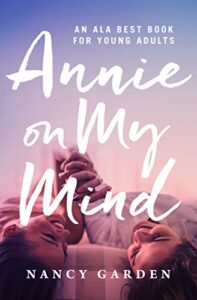
Nancy Garden, Annie on My Mind
Two teenage girls fall in love in New York City and despite pressure from family and authorities, there is a happy ending! First published in 1982, this book is now a classic young adult lesbian love story. –Sara Luce Look, Charis Books and More
Adiba Jaigirdar, Hani and Ishu’s Guide to Fake Dating
When Hani comes out as bi to her friends, they don’t believe her because she’s so far only dated guys. So she concocts a mutually beneficial plan with Ishu to fake date so she can prove her bisexuality and Ishu can gain popularity to win the votes for Head Girl. Hani and Ishu are both part of the Bengali diaspora in Ireland, yet they each have their own distinct experiences of their heritage and new country. I loved seeing the girls grow closer to each other, while also learning about how to navigate racism and family dynamics. –Sara Wigglesworth, Green Apple Books
A. S. King, Ask The Passengers
This was one of the first LGBTQ titles in our school library. I firsthand saw the impact that it had on several of my LGBTQ students who were able to see themselves represented within a book in their school. Using magical realism, Astrid finds an outlet in asking questions about life and relationships with the passengers flying over her at 30,000 feet. She is in the beginning stages of questioning her sexuality, and teens who are also starting to explore relationships will connect her struggles with figuring it all out. –Kristi Adams, Carl Junction High School librarian
Trung Le Nguyen, The Magic Fish
The Magic Fish is a wonderful graphic novel that follows the story of a son connecting to his mother through retellings of folktales. These folktales also weave the mother’s immigrant experience and the son struggling to find his own identity while reconciling two cultures, and it shows how timeless these stories are. He finds a way to share his queerness with his mother through storytelling; it’s so beautiful to see how fiction can help us communicate with family that has had a completely different upbringing than us. It was one of my favorite books to read. The incredible illustrations and delicacy of storytelling through many narratives made me cry multiple times! –Lucy Yu, Yu and Me Books
Malinda Lo, Ash
Malinda Lo is one of the great masters of young adult fiction. But before her most recent triumph, 2021’s National Book Award-winning Last Night at the Telegraph Club, there was Ash. Lo’s 2009 debut reimagines Cinderella as a romance between an abused young woman who chases dreams of fairies and the king’s huntress who chases deer; an unlikely friends to lovers pairing. It is an enchanting, ethereal read for those who gave up on seeing themselves in fairy tales long ago. –Jeanna Kadlec, author of Heretic
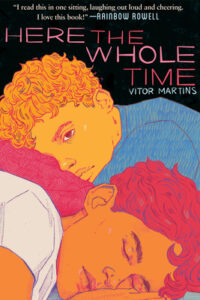
Vitor Martins, tr. Larissa Helena, Here the Whole Time
Here the Whole Time really captures that awkward sense of insecurity from adolescence that’s very relatable. Felipe is a gay, fat boy who is looking forward to his winter break as it’ll also be a break from the cruelty of his classmates. When he finds out his neighbor (and crush) will be staying with him for the break, he’s understandably worried. I loved to see Felipe slowly learn to love himself while also realizing he will always face people’s prejudices no matter how much self love he possesses. He just has to learn how to surround himself with the people who love him for who he is! Also, the normalization of therapy was so refreshing. –Sara Wigglesworth, Green Apple Books
Cory McCarthy, Man O’War
McCarthy’s semi-autobiographical novel deals with a lot of the same issues he had growing up—coming out as trans in the midwest, dealing with his body while trying to be on the swim team, falling in love, and working at a huge oceanic aquarium in the middle of Ohio, a state with no nearby oceans.
This stunningly written book follows years of a life-changing friendship as it turns into a romance, from high school to college, as the author shows us one of the most honest accounts of being queer today I’ve ever read. There are ups and downs, but what McCarthy does so well is show how by the end, all the ups are worth all the downs. A book that inspires real hope, even in the worst of times. –Lev AC Rosen, author of Lavender House
Junauda Petrus, The Stars and the Blackness Between Them
Audre and Mabel are from very different backgrounds—Port-of-Spain, Trinidad and Minneapolis, Minnesota—but both are black and queer and irresistibly drawn to one another. As Audre mourns her first romance and her relationship with her mother, Mabel discovers that she’s suffering from a mysterious illness that gradually takes away much of what had made her life enjoyable. In a search for meaning, she reaches out to an inmate in prison whose book, in her father’s library, spoke to her. A beautiful book that explores how important and beautiful formative friendships and romances can be, even if they are temporary. –Hal Schrieve, New York Public Library
Aden Polydoros, The City Beautiful
In 1893 Chicago, the gleaming wonder of the World’s Fair stands in stark contrast to the hard-scrabble lives of impoverished immigrants and the blood-soaked stench of the stockyards. Jewish boys are disappearing from Maxwell Street, and the police aren’t interested in looking for them. For Alter Rosen, a young typesetter trying to earn his family’s passage from Romania, the crimes seem like a chance to finally start reporting for the paper. But when his beloved roommate is found murdered, and he finds himself possessed by the dead boy’s dybbuk, he must hunt down the killer or see his own soul destroyed. –Molly Odintz, CrimeReads senior editor
Adam Sass, Surrender Your Sons
I think a lot of folks think of queer young adult these days as being happy rom-coms that exist in a world without homophobia. And those books are absolutely vital, but sometimes the focus on them means that kids today who DO experience homophobia don’t see themselves in books and maybe feel like the homophobia they feel is somehow their fault. What’s important to see is books that FIGHT homophobia, even when it seems hopeless. Surrender Your Sons is that. A book about a teen taken to a conversion camp on a horrific island, it’s half horror-survival, half adventure-mystery and all about fighting back, which is a message queer teens need to hear now more than ever. –Lev AC Rosen, author of Lavender House
Mariko Tamaki, Cold
A murdered gay teenager’s ghost remembers the weeks leading up to his death—but not the moment itself. Meanwhile, a girl at a neighboring Catholic school is juggling her questions about her brother and friends’ dubious alibis with her feelings for her best friend. As the cops frame a gay teacher for the murder of the boy, will new evidence emerge pointing to the real killer?
A page-turning murder mystery which examines the biases of the police and the terror of older gay people to speak to younger people, while also managing to navigate the feelings and vagaries of queer coming out with gentleness and heart. Often funny, despite death’s constant presence. Gripping. –Hal Schrieve, New York Public Library
Edward van de Vendel, tr. Emma Rault, The Days of Bluegrass Love
Originally published in 1999 and translated from the Dutch, I’m thrilled to recommend the best gay romance I’ve read since Boyfriend Material! This swoon-worthy classic has been a hit across the pond for good reason! It’s tender, intense, heartbreaking and exhilarating. In this novel, teens fall in love at summer camp. Their love story makes for an amazing read. –Jacque, Books Are Magic
Andrew Joseph White, Hell Followed Us
Body horror meets apocalypse noir meets queer love story in Andrew Joseph White’s viscera-filled YA novel, Hell Followed With Us. In White’s debut, trans boy Benji is on the run from his fundamentalist mother and her apocalyptic cult when he finds shelter with the kind denizens of a LGBTQ Center, and budding romance with the mysterious and deadly Nick. He’d love to just be happy with his new friends, but his old community is in hot pursuit—they’ve injected him with a transformative virus that gives him control over the many monsters created by a deadly plague, and they’re not about to let him go. In order to escape for good, Benji must embrace his terrible new powers in a perfect metaphor for coming of age that is also a disgusting pile of blood and viscera (and I mean that in the best possible way). –Molly Odintz, CrimeReads senior editor
Julian Winters, The Summer of Everything
Honestly, any Julian Winters book could be on this list. A queer library without at least one Winters book is a summer without sunshine, and the Summer of Everything shows him at the top of his game. With secret best-friend crushes, teen uncertainty of what you want your future to be, and a huge group of geeky friends, it’s a book that perfectly captures that time just before adulthood when you’re trying to make tough choices but also just trying to spend as much time having fun as possible. –Lev AC Rosen, author of Lavender House
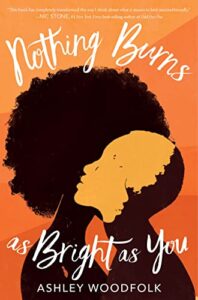
Ashley Woodfolk, Nothing Burns as Bright as You
A painfully beautiful, poetic work that captures the immediacy and heartbreak of first love. Told in a series of slice-of-life remembrances, this young adult novel follows two teenage girls—best friends and something more—whose passionate intimacy sets fires both figurative and literal. –Kira Apple, Charis Books and More
*
CHILDREN’S
Joy Michael Ellison, Sylvia and Marsha Start a Revolution!: The Story of the Trans Women of Color Who Made LGBTQ+ History
Sylvia Rivera and Marsha P. Johnson are two often-cited names in the history of queer liberation. This book for young readers explains the conditions of their lives and their decision to fight back against police brutality in terms suited to any age group, and illustrates how Johnson and Rivera made safe space for other trans girls through their lifelong activism. –Hal Schrieve, New York Public Library
Vincent X. Kirsch, From Archie to Zack
Archie and Zack love each other, but are too nervous to say anything! Over the course of several gorgeously illustrated seasons, Archie contemplates how to tell Zack how he feels. I loved how Kirsch’s illustrations show both the love between the two boys and Archie’s anxiety. Perfectly captures the tentative joy of first love. I’ve been waiting for a picture book that depicts queer love between kid characters, and this one was a dream come true. –Sara Wigglesworth, Green Apple Books
Nina LaCour, Mama and Mommy and Me in the Middle
It’s so hard to be apart from a loved one! Nina LaCour’s writing and Kaylani Juanita’s illustrations beautifully stir up those homesick type feelings. Told from the unnamed kid’s perspective, Mama and Mommy and Me in the Middle goes through a week of Mommy being on a work trip and how much the kid and Mama miss her. Poignant and bittersweet, sometimes the best feeling in the world is being snuggled up in the middle of your parents, especially after a long separation. –Sara Wigglesworth, Green Apple Books
Kat Leyh, Snapdragon
Snap knows the old woman who collects bones can’t really be a witch—and thinks she’s proved right when Jacks fixes her dog’s broken leg and agrees to teach her about animal biology. But something weird is happening with a ghost fox that has followed Snap’s family for generations. A story about gender-nonconforming girls and family that doesn’t confine itself to the nuclear. Snap’s best friend Lu is a trans girl whose early experiments in gender are supported by her own family and Snap’s. Funny, beautifully illustrated, and heartwarming—with a little spooky-scary. –Hal Schrieve, New York Public Library
Leo Lionni, A Color of His Own
This story of a young, lone chameleon searching for his true color is a joyful picture book about finding and claiming one’s identity. It also is a colorful, gentle story about the importance of queer community. The lone chameleon spends pages trying out different colors only to be crestfallen that none of them are permanent. There is a particularly striking illustration mid-book when the chameleon is a dark smoke color to match the cold dark night, and his eye is casting upward in a depressed stare. It is only once he meets another male chameleon who offers companionship that our titular chameleon experiences the joy of self acceptance and community. They will still change colors as they travel and as the seasons change, but always together. –Jennie Law, Georgia State University Library
Kyle Lukoff, Too Bright to See
Bug’s gay uncle was the bright spot in Bug’s life—and now that Roderick is gone, Bug’s relatively stable life has come unmoored. Bug’s best friend Moira says they need to change their look before middle school to be more feminine, and Bug disagrees but doesn’t have another suggestion. Meanwhile, ghostly appearances and hauntings in Bug’s house are getting more disruptive and dangerous. Is the ghost of uncle Roderick back to tell Bug something? But what? A coming-out story that relies on communication with those who have gone before. Touching, moving, intensely necessary. –Hal Schrieve, New York Public Library
Gayle E. Pitman, illust. Holly Clifton-Brown, Sewing the Rainbow: A Story About Gilbert Baker
Learn about the history of the rainbow flag and Gilbert Baker, its creator, and get insight into the significance of its colors. Follow Baker as he survives his time in the army and moves to San Francisco, where he discovers magic and learns to sew the beautiful costumes he’d dreamed of making as a little boy. Understand more about the history of Pride as a political movement! –Hal Schrieve, New York Public Library
Erica Silverman, illust. Holly Hatam, Jack (Not Jackie)
Jack (Not Jackie) by Erica Silverman is a great picture book resource for parents, teachers and community members. It tells the story of a child (Jackie) deciding to live authentically as a little boy (Jack). It shows how this transition was challenging for his sibling. But once they understand and see how happy Jack is, they are excited to have a brother. –Angela Garbriel, Charis Books and More
Harry Woodgate, Grandad’s Camper
Grandad tells his granddaughter about all the adventures he used to have with Gramps, his partner, in the camper they drove all over the country together. Gramps is gone now, but the camper, broken down and busted, still sits in the shed. In honor of Gramps, they fix the camper together to reenact some of the couple’s travels. A sweet story about gay grandparents and intergenerational storytelling. –Hal Schrieve, New York Public Library
Wendy Xu, Tidesong
This book is wonderful—Wendy Xu has done it again! Sophie is preparing for her magic school audition, but when a mysterious dragon boy washes up on the beach, she and her family discover they have some bigger magical problems to contend with. Tidesong is a beautiful ode to growing up and growing into your magic, both metaphorical and literal! –Isabel, Books Are Magic









